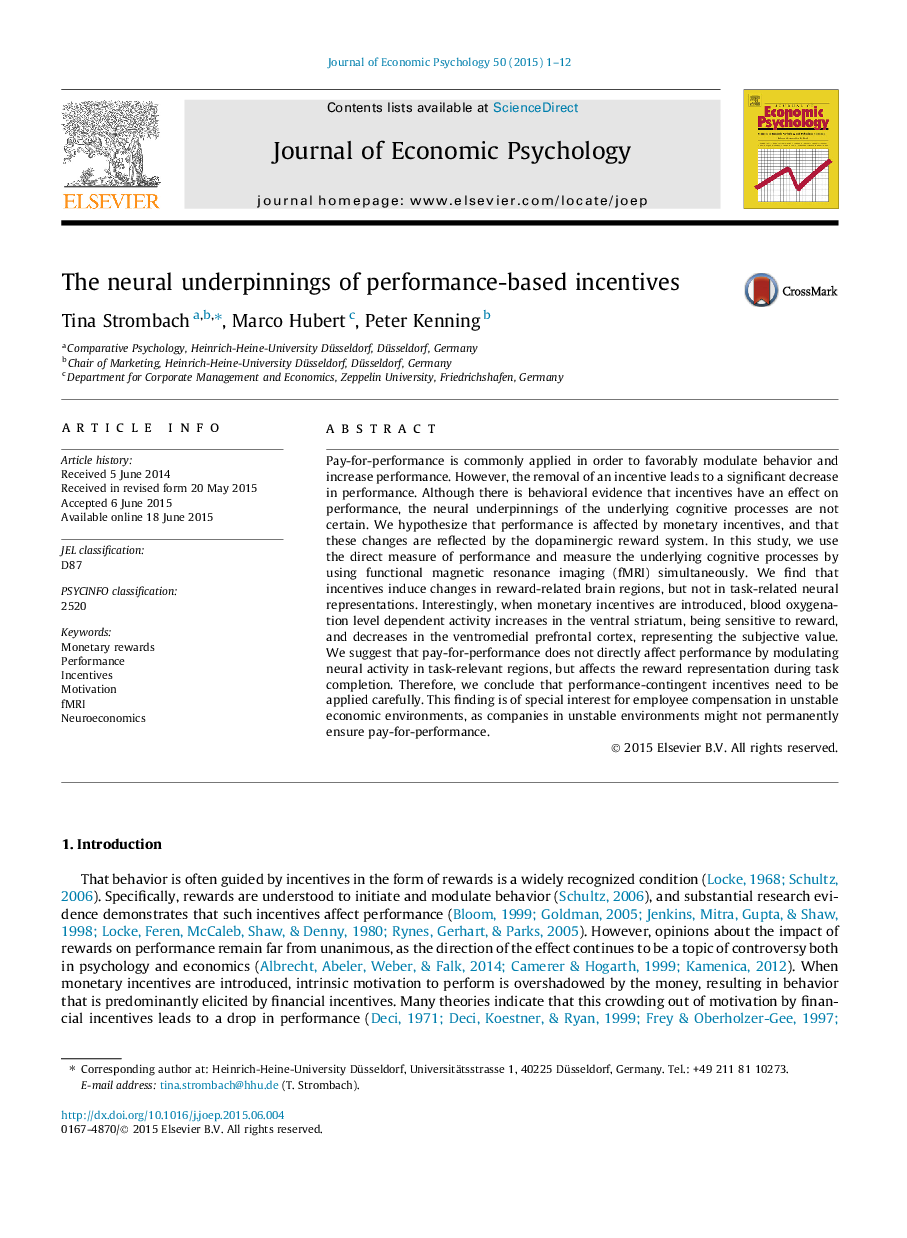| Article ID | Journal | Published Year | Pages | File Type |
|---|---|---|---|---|
| 7244572 | Journal of Economic Psychology | 2015 | 12 Pages |
Abstract
Pay-for-performance is commonly applied in order to favorably modulate behavior and increase performance. However, the removal of an incentive leads to a significant decrease in performance. Although there is behavioral evidence that incentives have an effect on performance, the neural underpinnings of the underlying cognitive processes are not certain. We hypothesize that performance is affected by monetary incentives, and that these changes are reflected by the dopaminergic reward system. In this study, we use the direct measure of performance and measure the underlying cognitive processes by using functional magnetic resonance imaging (fMRI) simultaneously. We find that incentives induce changes in reward-related brain regions, but not in task-related neural representations. Interestingly, when monetary incentives are introduced, blood oxygenation level dependent activity increases in the ventral striatum, being sensitive to reward, and decreases in the ventromedial prefrontal cortex, representing the subjective value. We suggest that pay-for-performance does not directly affect performance by modulating neural activity in task-relevant regions, but affects the reward representation during task completion. Therefore, we conclude that performance-contingent incentives need to be applied carefully. This finding is of special interest for employee compensation in unstable economic environments, as companies in unstable environments might not permanently ensure pay-for-performance.
Related Topics
Social Sciences and Humanities
Business, Management and Accounting
Marketing
Authors
Tina Strombach, Marco Hubert, Peter Kenning,
